Indigenous Governance Database
public safety
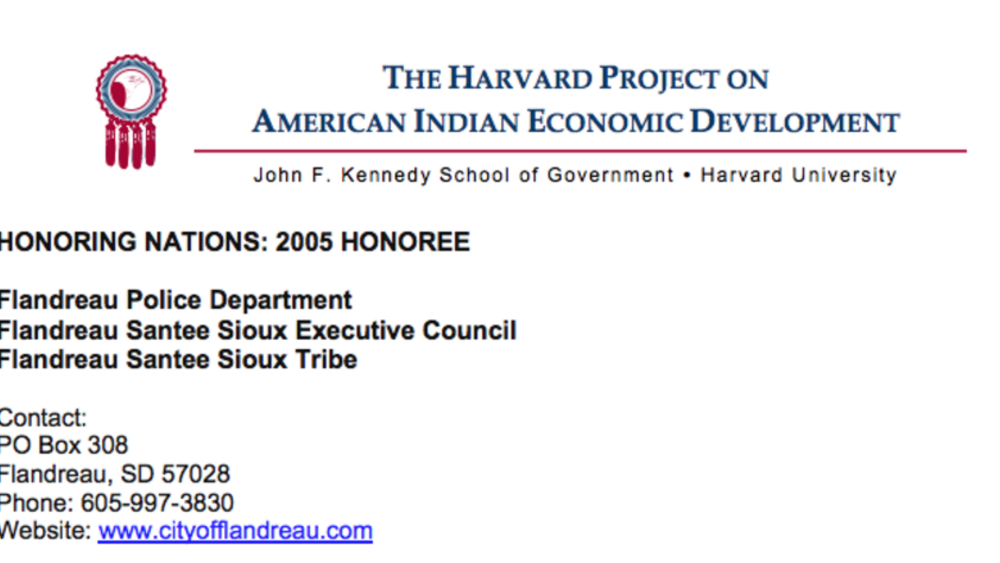
Flandreau Police Department
The Flandreau Santee Sioux Tribe’s lands are situated within Moody County and the City of Flandreau, South Dakota. This location presents the Nation with a particular challenge: How do you provide adequate and culturally sensitive public safety and law enforcement for your citizens in mixed…
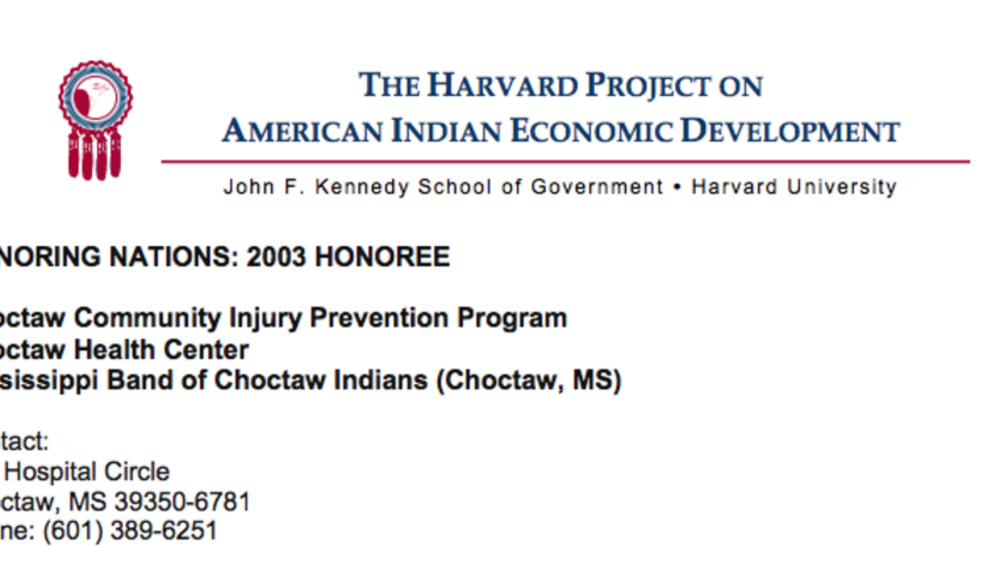
Choctaw Community Injury Prevention Program
Responding to alarming rates of preventable accidents on its reservation, the Mississippi Band of Choctaw created a comprehensive community injury prevention program in 2001. Through seat belt and child safety seat campaigns, strict enforcement of motor vehicle laws, and community-wide education…
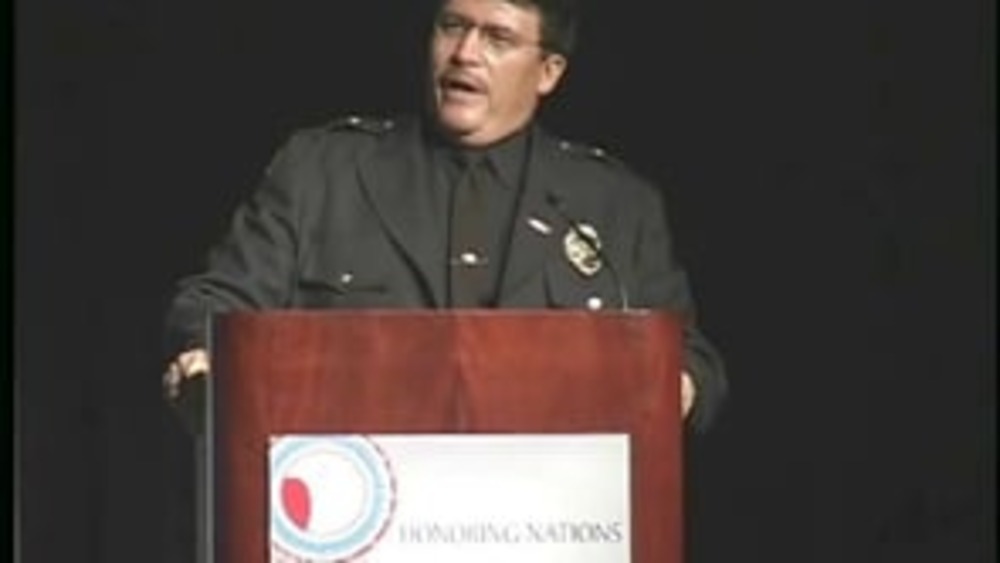
Honoring Nations: Ken James: The Flandreau Police Department (2005)
Former Flandreau Police Chief Ken James present an overview of the Flandreau Police Department to the Honoring Nations Board of Governors in conjunction with the 2005 Honoring Nations Awards.
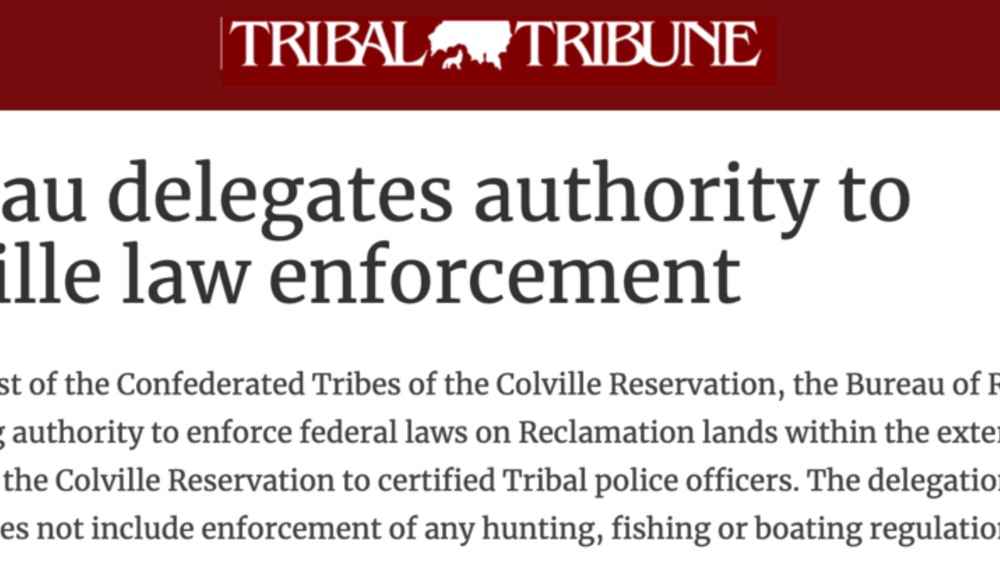
Bureau delegates authority to Colville law enforcement
At the request of the Confederated Tribes of the Colville Reservation, the Bureau of Reclamation is delegating authority to enforce federal laws on Reclamation lands within the exterior boundary of the Colville Reservation to certified Tribal police officers. The delegation of authority does not…
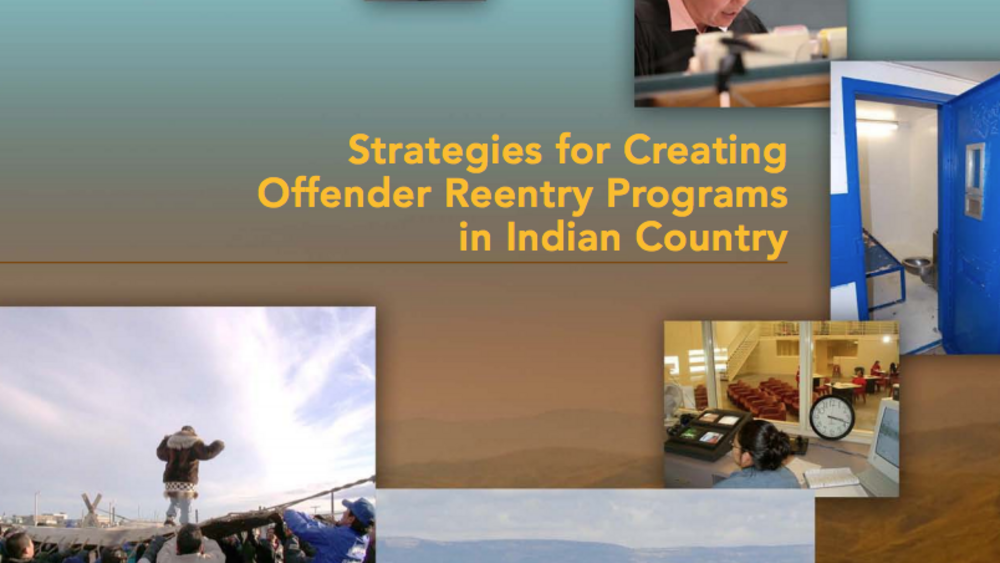
Strategies for Creating Offender Reentry Programs in Indian Country
Weed and Seed, a community-based strategy sponsored by DOJ, is an innovative, comprehensive, multi-agency approach to law enforcement, crime prevention, and community revitalization. The strategy aims to prevent, control, and reduce violent crime, drug abuse, and gang activity in designated high-…
